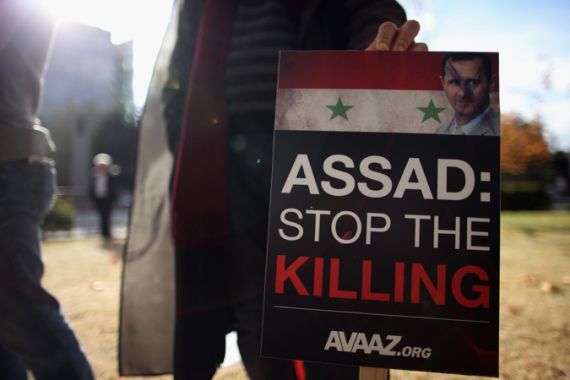
Counting Syria’s dead
The UN says over 5,000 have been killed in the uprising but how difficult is it to accurately assess the death toll?
The death toll in Syria has risen steadily since the crackdown there began in March, but on Tuesday Navi Pillay, the United Nations commissioner for human rights, told the UN Security Council that in the last four months the number has doubled to more than 5,000.
|
“I reported situations of torture in detention centres,… displaced persons and thousands in detention.“ – Navi Pillay, UN human rights chief |
That figure is 1,000 higher than the one she announced 10 days ago and includes civilians, army defectors and those executed for refusing to shoot civilians, but not soldiers and other security personnel killed by opposition forces.
The Syrian government has disputed that toll and says more than 1,100 members of the army, police and security services have been killed.
Bashar Ja’afari, the Syrian ambassador to the UN, reacted angrily to Pillay’s report, saying she is not objective, fair or genuine.
|
“She [Navi Pillay] allowed herself to be misused in misleading the public opinion by providing information based on allegations collected from 233 defectors.“ – Bashar Ja’afari, Syrian ambassador to the UN |
So far, Damascus has refused requests by the Arab League and others to allow international observers into the country without conditions and the Syrian ambassador claims hundreds of journalists are reporting freely there.
So, how difficult is counting the death toll in Syria and how should we interpret these latest figures? And what will happen next in the now nine-month old revolt against Bashar al-Assad, the country’s president?
Inside Story, with presenter Hazem Sika, discusses with guests: Farah Atassi, a Syrian political activist and secretary-general of the National Syrian Women’s Association; Mousab Azzawi, a human rights activist; and Thabet Salem, a Syrian journalist and political commentator.
| “We estimate that the number [of dead] is way higher than [the number given by the UN] … because it is so hard to get the final number of casualties in Syria … mainly because there are so many young men and women who have disappeared. Their families don’t know where they are; whether they are arrested or dead …. Sometimes they find those people in mass graves.”
Farah Atassi, a Syrian political activist |